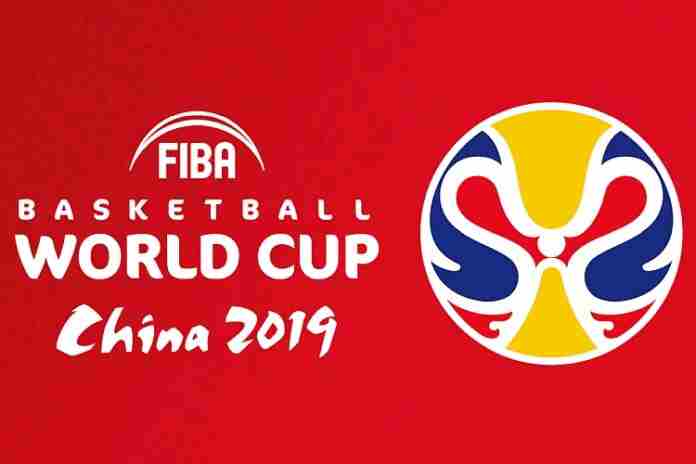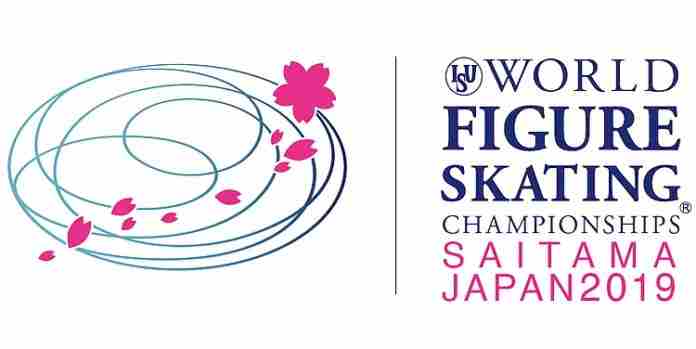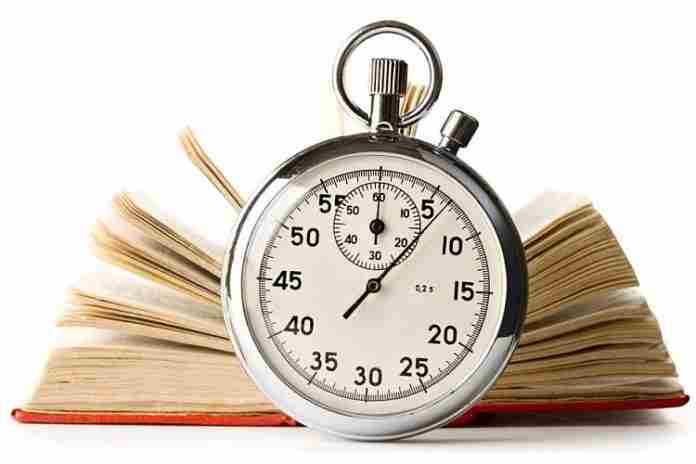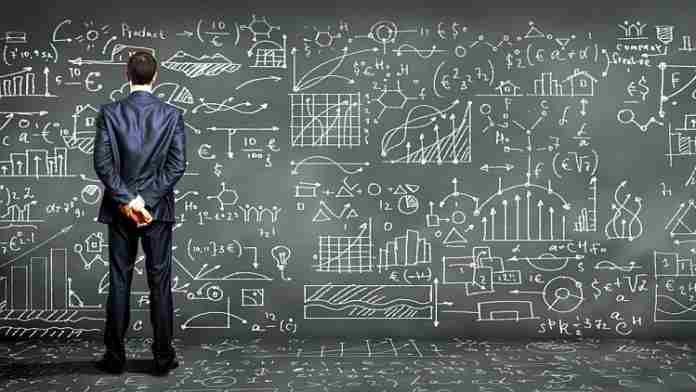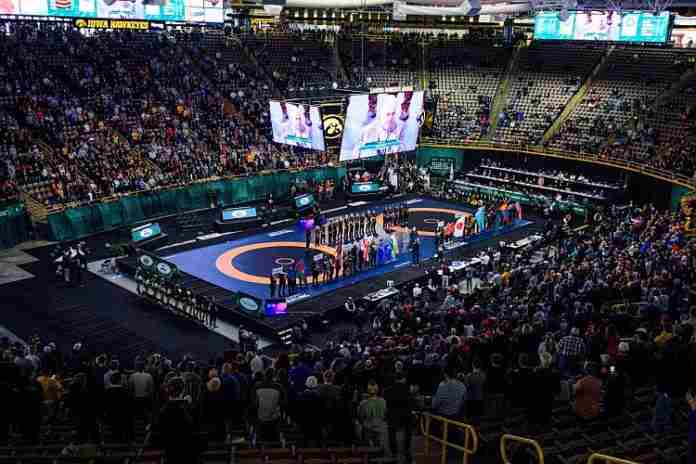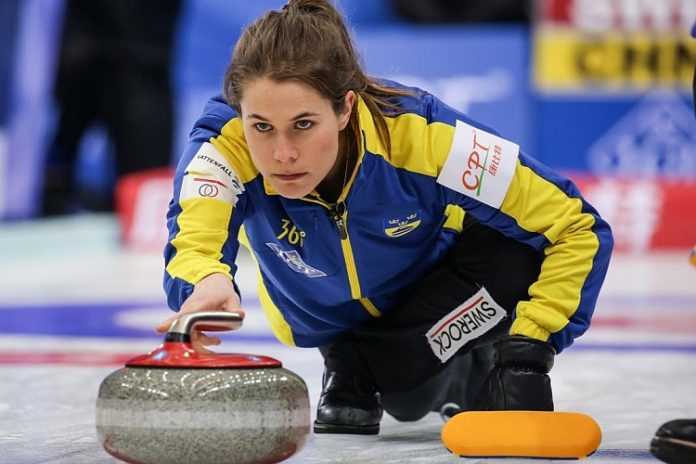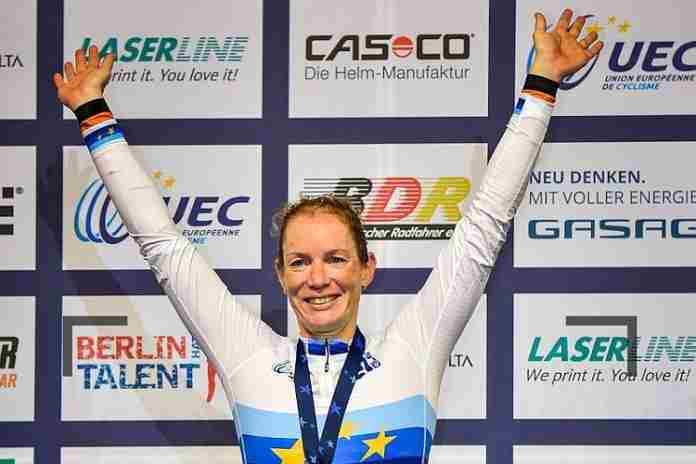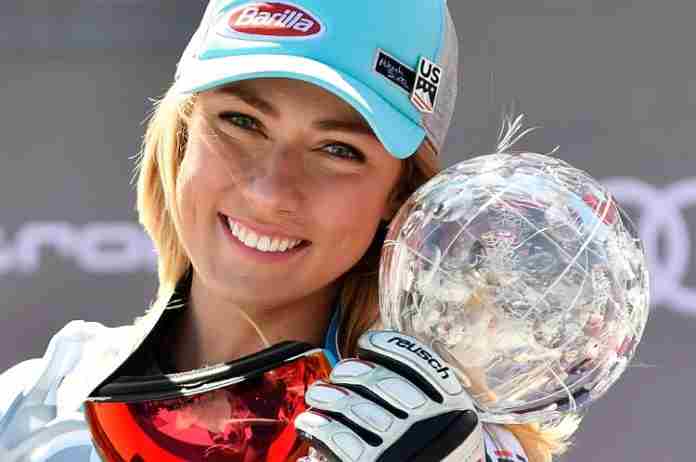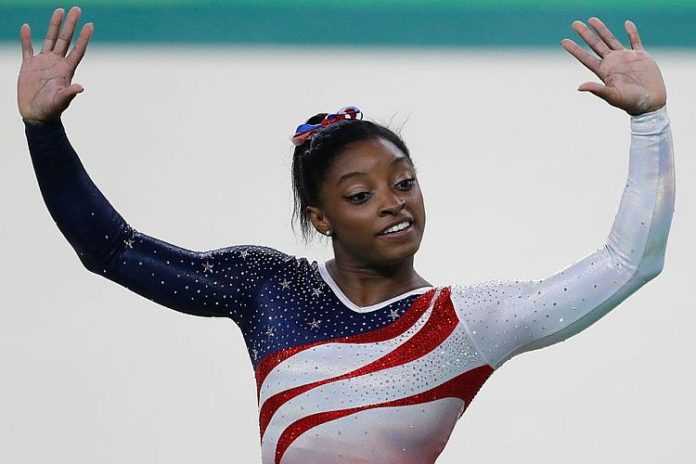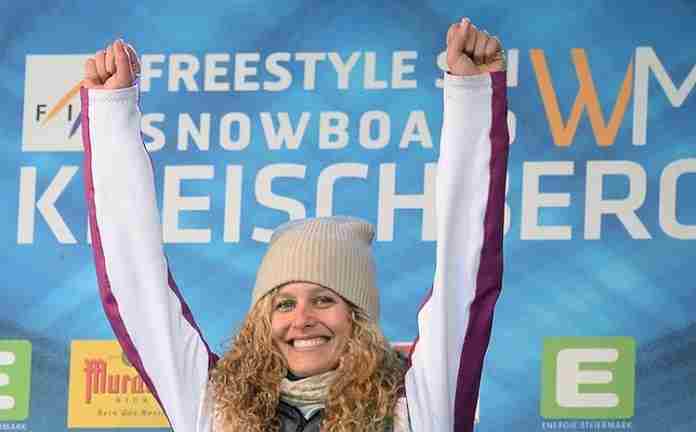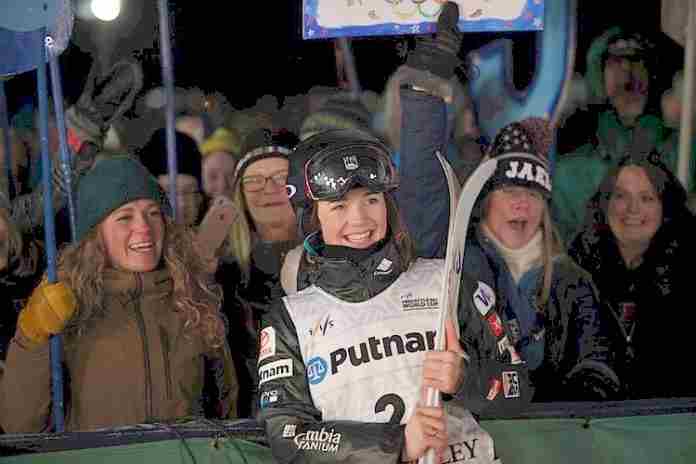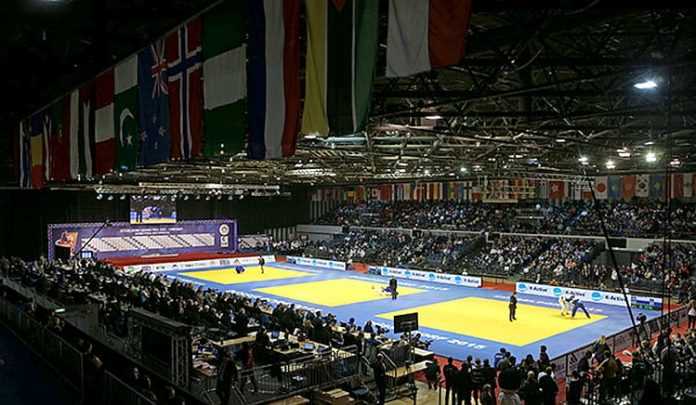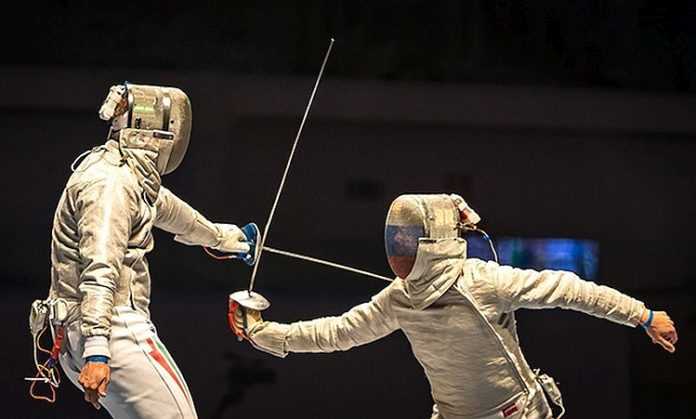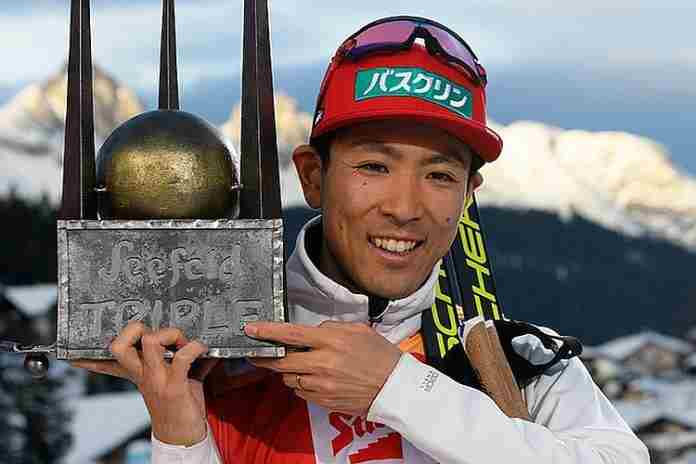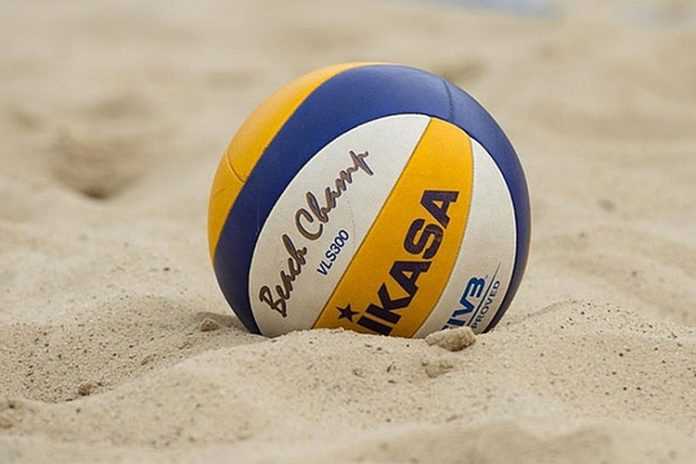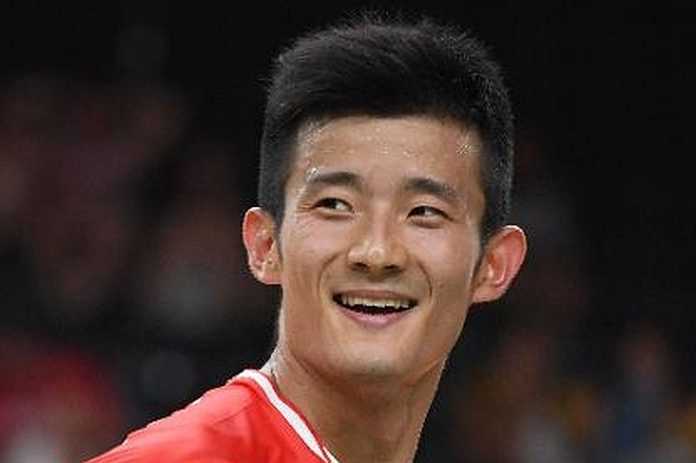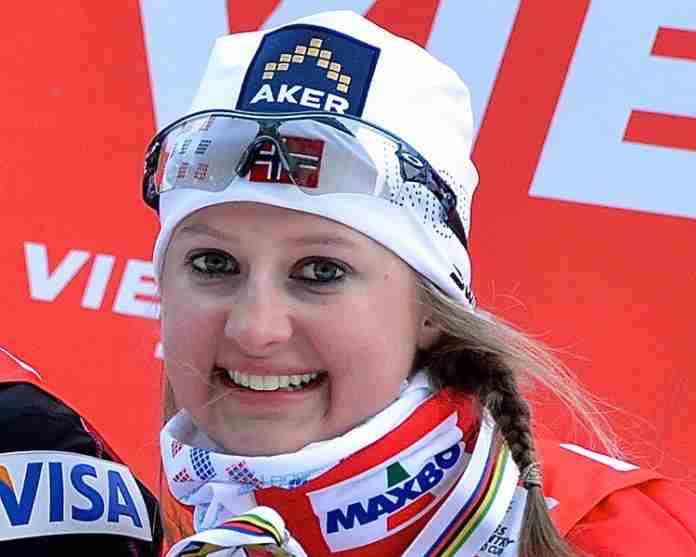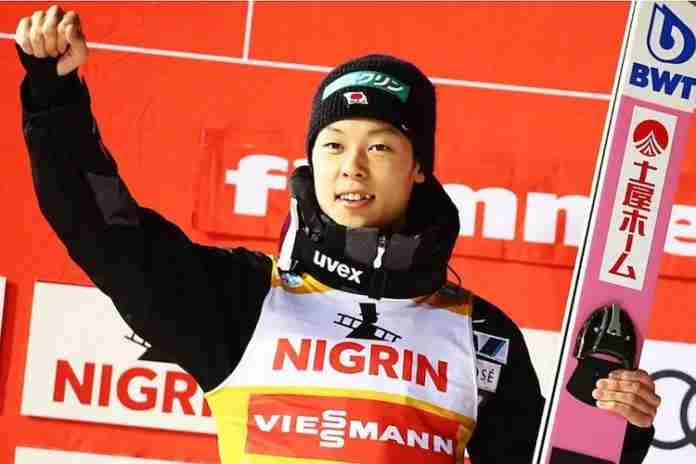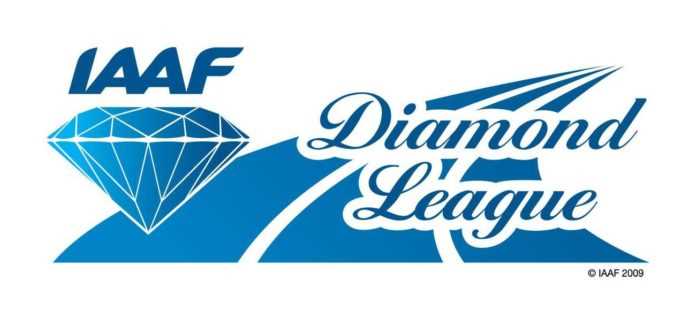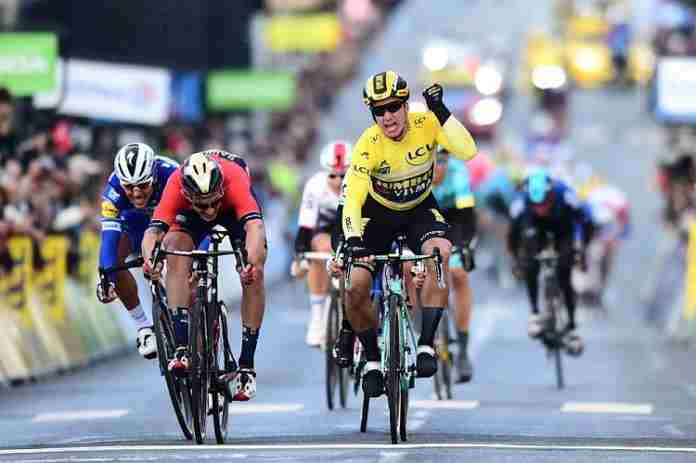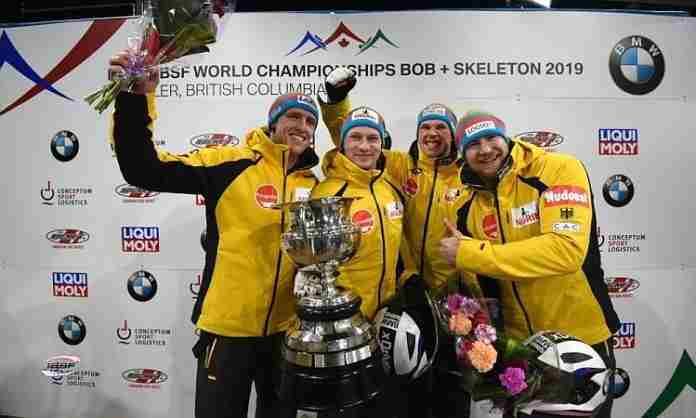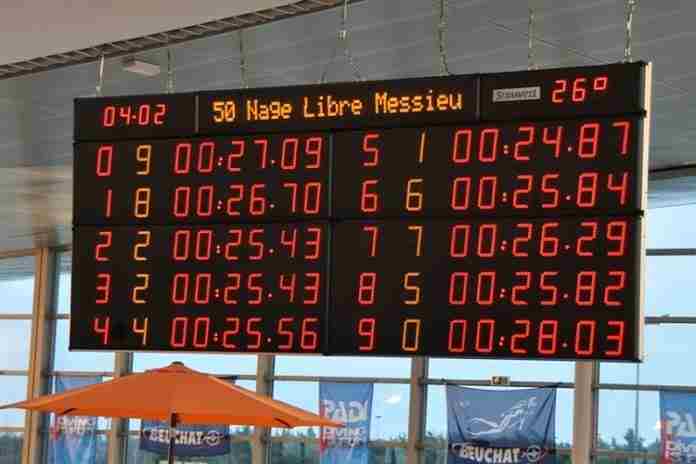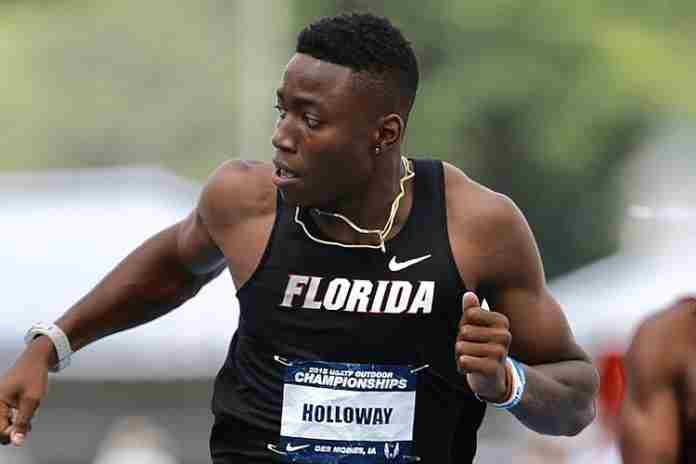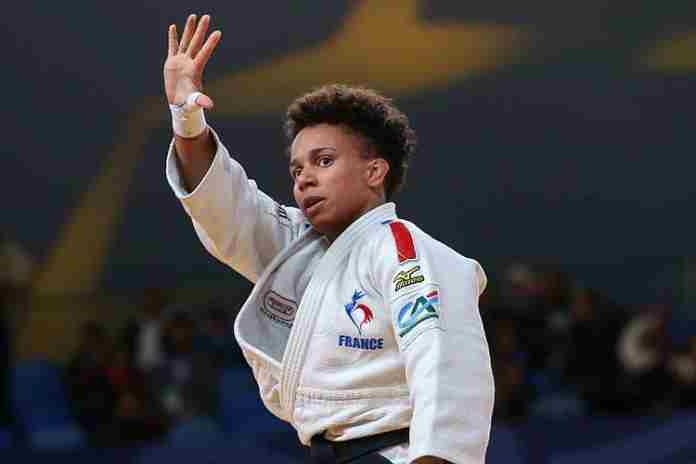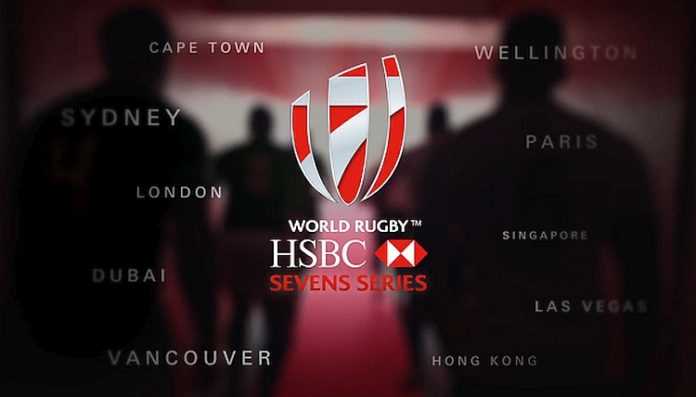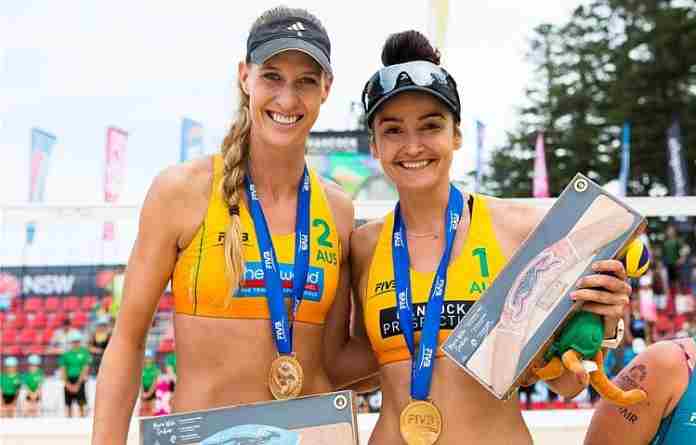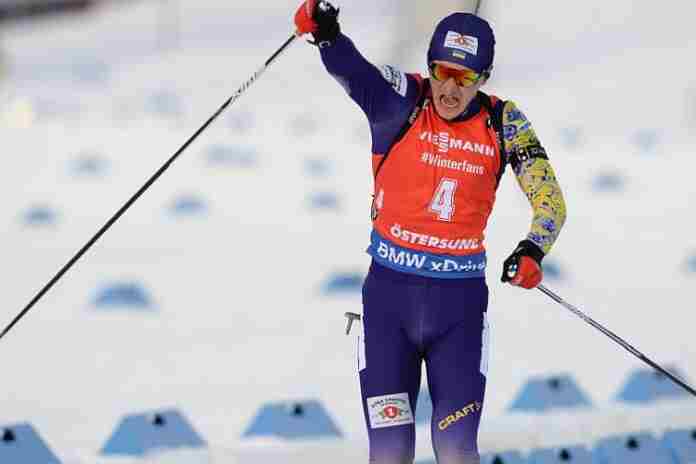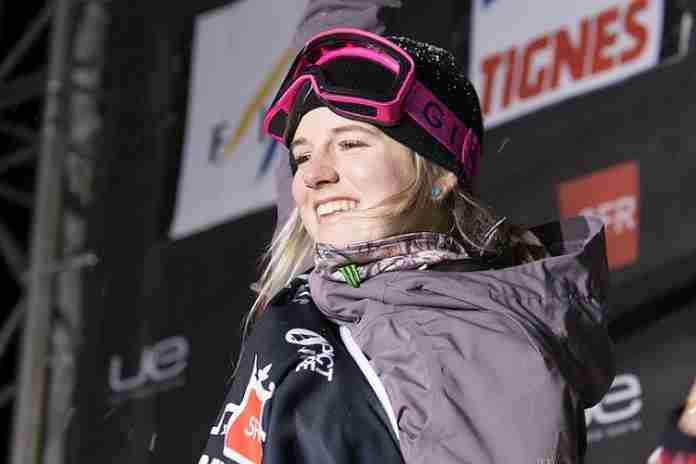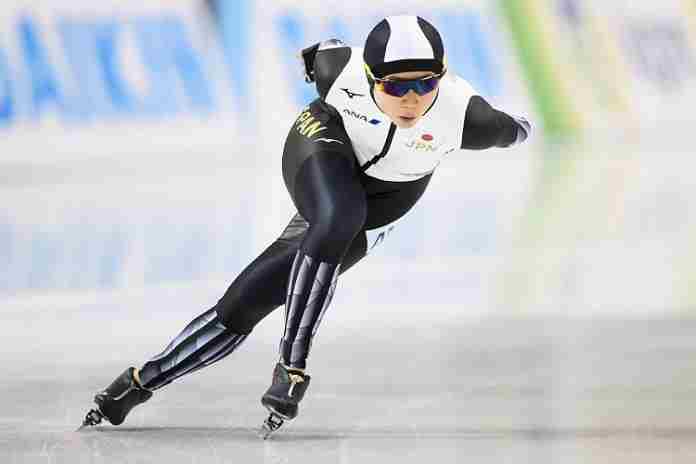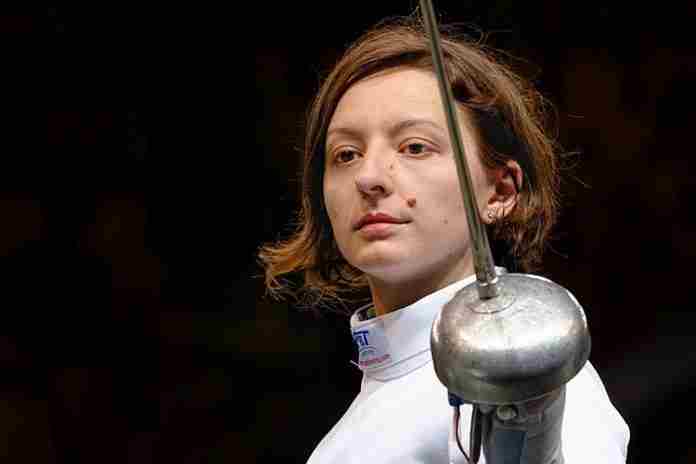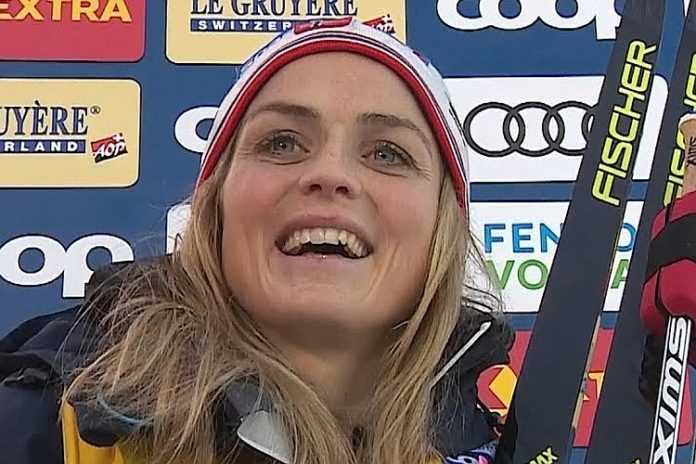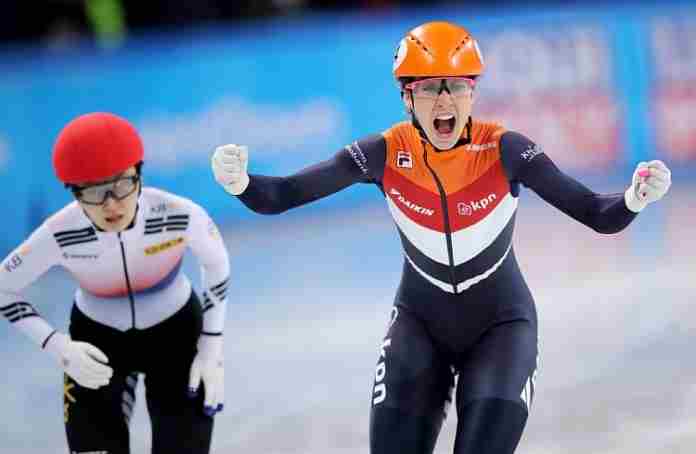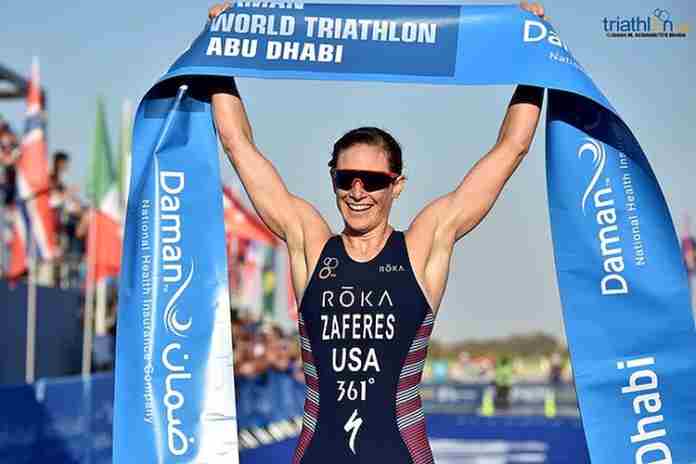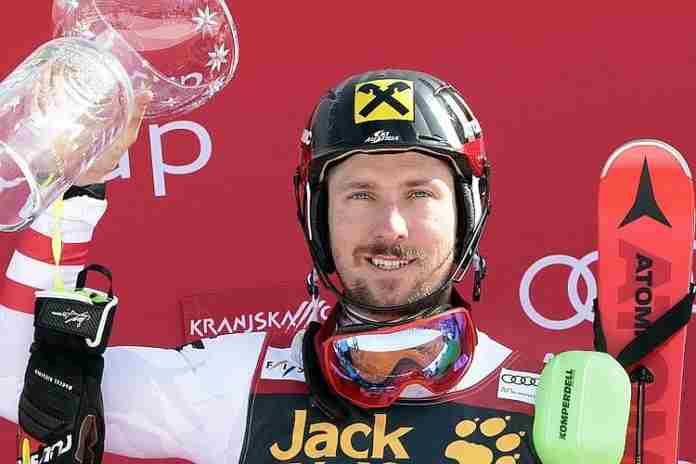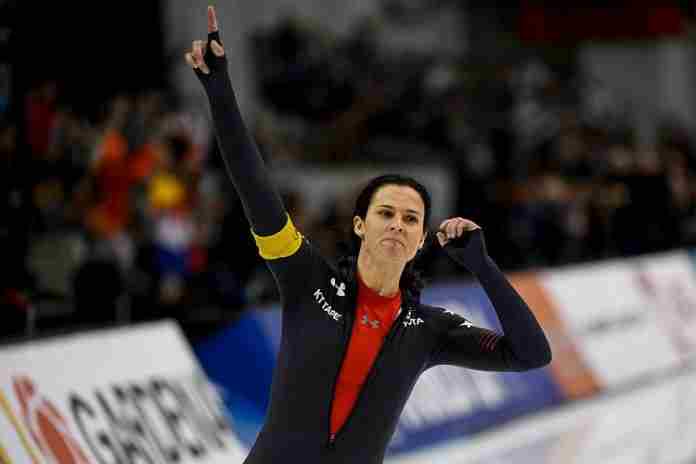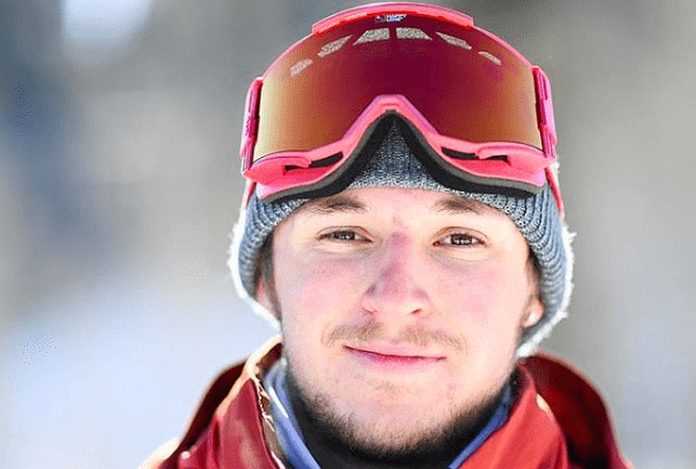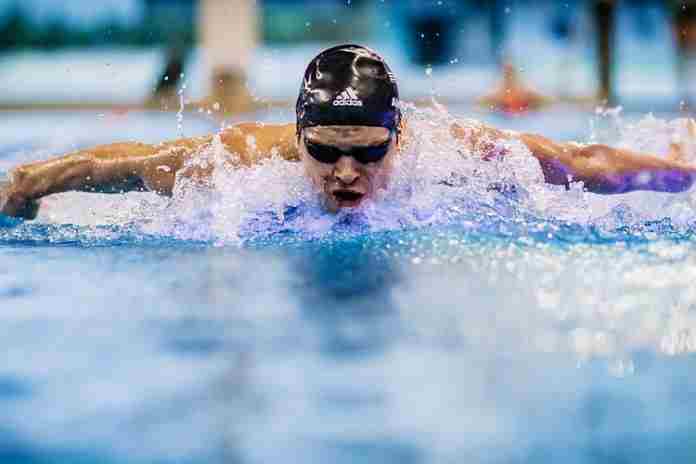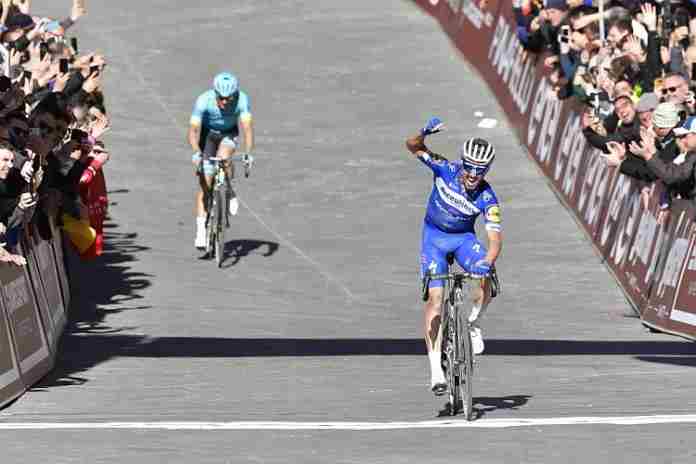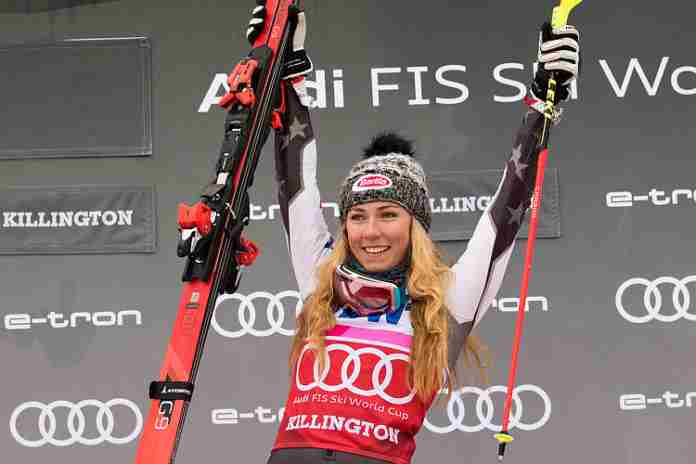The star of the 2019 World Cup Final was the Utah Olympic Oval, which re-confirmed its status as the fastest track in the world, with two more world records on the final day of the meet:
● Men’s 1,500 m: 1:40.176, Kjeld Nuis (NED)
● Women’s 1,500 m: 1:49.839, Miho Takagi (JPN)
Takagi claimed her record in the first race of the day, but she had to beat the world record set two pairs earlier by American Brittany Bowe. Like the 1,000 m the day before, Bowe sped to a world mark of 1:50.327 – better than American Heather Bergsma’s mark of 1:50.85 from 2015, on this same track – and took the lead. Takagi, skating against Dutch star Ireen Wust, won and became the first women under 1:50 with a time of 1:49.839!
In all, four women broke Bergsma’s time from four years ago, with Takagi owning the record, but Bowe winning the seasonal 1,500 m title – her first at that distance – to go with her 1,000 m title from Saturday.
In the men’s 1,500 m, Nuis skated in the second pair against teammate Thomas Krol and moved powerfully around the oval to clock 1:40.76, breaking Russian Denis Yuskov’s 1:41.02 from 2017. Yuskov was still to come and he made a mighty effort, finally finishing in 1:41.499, but finished third to Nuis, and to Krol (1:40.541).
Yuskov got the consolation prize of winning the 1,500 m season title with 319 points, well ahead of Min-Seok Kim (KOR: 279) and Nuis (274).
In the sprints, Russia’s Pavel Kulizhnikov, who set a world record on Saturday, was the easy winner of the season series after Sunday’s race, won by Tatsuya Shinhama (JPN). Kulizhnikov finished with 630 points to 594 for Shinhama.
The women’s 500 m season title went to Austria’s Vanessa Herzog by 708-600, even though runner-up Nao Kodaira (JPN) won both races on the weekend. Kodaira’s mid-season decision to skip some World Cup races for more training was the difference, as she was undefeated in the eight races she skated. But Herzog competed in all 11.
The meet concluded with an astonishing eight world marks being set in six (of the 10) events, with two each in the women’s 1,000 m and 1,500 m, making the Utah Olympic Oval once again the star of the international speed skating circuit for 2019! Summaries:
ISU Speed Skating World Cup Final
Kearns, Utah (USA) ~ 9-10 March 2019
(Full results here)
Men
500 m I: 1. Pavel Kulizhnikov (RUS), 33.616 (World Record; old, 33.98, Kulizhnikov, 2015); 2. Tatsuya Shinhama (JPN), 33.835; 3. Yuma Murakami (JPN), 34.113; 4. Min-Kyu Cha (KOR), 34.227; 5. Ryohei Haga (JPN), 34.238.
500 m II: 1. Shinhama (JPN), 33.790; 2. Cha (KOR), 34.030; 3. Murakami (JPN), 34.104; 4. Viktor Mushtakov (RUS), 34.168; 5. Havard Holmefjord Lorentzen (NOR). 34281.
500 m World Cup Final Standings: 1. Pavel Kulizhnikov (RUS), 630; 2. Tatsuya Shinhama (JPN), 594; 3. Havard Holmefjord Lorentzen (NOR), 498; 4. Ryohei Hag (JPN), 492; 5. Yuma Murakami (JPN), 481.
1,000 m: 1. Kjeld Nuis (NED), 1:06.183 (World Record; old, 1:06.42, Shani Davis (USA), 2009); 2. Thomas Krol (NED, 1:06.255; 3. Kai Verbij (NED), 1:06.347; 4. Kulizhnikov (RUS), 1:06.476; 5. Lorentzen (NOR), 1:06.513. Also: 9. Joey Mantia (USA), 1:07.348.
1,000 m World Cup Final Standings: 1. Kjeld Nuis (NED), 342; 2. Kai Verbij (NED), 304; 3. Pavel Kulizhnikov (RUS), 303; 4. Thomas Krol (NED), 298; 5. Havard Lorentzen (NOR), 297. Also: 10. Joey Mantia (USA), 219.
1,500 m: 1. Nuis (NED), 1:40.176 (World Record; old, 1:41.02, Denis Yuskov (RUS), 2017); 2. Krol (NED), 1:40.541; 3. Denis Yuskov (RUS), 1:41.499; 4. Sverre Lunde Pedersen (NOR), 1:42.392; 5. Min-Seok Kim (KOR), 1:42.545. Also: 8. Mantia (USA), 1:42.924.
1,500 m World Cup Final Standings: 1. Denis Yuiskov (RUS), 319; 2. Min-Seok Kim (KOR), 279; 3. Kjeld Nuis (NED), 274; 4. Seitaro Ichinohe (JPN), 263; 5. Thomas Krol (NED), 259. Also: 7. Joey Mantia (USA), 249.
5,000 m: 1. Patrick Roest (NED), 6:03.706; 2. Marcel Bosker (NED), 6:08.904; 3. Ted-Jan Bloemen (CAN), 6:09.645; 4. Alexander Rumyantsev (RUS), 6:10.785; 5. Pedersen (NOR), 6:10.982.
5,000/10,000 m World Cup Final Standings: 1. Alexander Rumyantsev (RUS), 322; 2. Marcel Bosker (NED), 320; 3. Sverre Lunde Pedersen (NOR), 317; 4. Patrick Roest (NED), 282; 5. Patrick Beckert (GER), 270.
Mass Start (16 laps): 1. Ryosuke Tsuchiya (JPN), 7:38.390; 2. Vitaly Mikhailov (LR), 7:41.210; 3. Simon Schouten (NED), 7:51.660; 4. Viktor Hald Thorup (DEN), 7:58.000; 5. Chris Huizinga (NED), 7:10.510. Also: 9. Mantia (USA), 7:12.120.
Mass Start World Cup Final Standings: 1. Cheonho Um (KOR), 535; 2. Bart Swings (BEL), 502; 3. Ruslan Zakharov (RUS), 434; 4. Livio Wenger (SUI), 420; 5. Ryosuke Tsuchiya (JPN), 410. Also: 9. Joey Mantia (USA), 371.
Women
500 m I: 1. Nao Kodaira (JPN), 36.474; 2. Vanessa Herzog (AUT), 36.850; 3. Angelika Golikova (RUS), 36.9032; 4. Brittany Bowe (USA), 37.168; 5. Konami Soga (JPN), 37.190.
500 m II: 1. Kodaira (JPN), 36.492; 2. Olga Fatkulina (RUS), 36.833; 3. Herzog (AUT), 36.835; 4. Konami Soga (JPN), 36.995; 5. Maki Tsuji (JPN), 37.090. Also: 6. Bowe (USA), 37.126.
500 m World Cup Final Standings: 1. Vanessa Herzog (AUT), 708; 2. Nao Kodaira (JPN), 600; 3. Olga Fatkulina (RUS), 587; 4. Angelika Golikova (RUS), 556; 5. Brittany Bowe (USA), 510.
1,000 m: 1. Brittany Bowe (USA), 1:11.610 (World Record; old, 1:11.713, Miho Takagi (JPN) in prior pair; pre-meet world record: 1:12.09, Nao Kodaira (JPN), 2017); 2. Miho Takagi (JPN), 1:11.713; 3. Kodaira (JPN), 1:11.776; 4. Yekaterina Shikhova (RUS), 1:12.469; 5. Olga Fatkulina (RUS), 1:12.986.
1,000 m World Cup Final Standings: 1. Brittany Bowe (USA), 397; 2. Miho Takagi (JPN), 310; 3. Nao Kodaira (JPN), 298; 4. Vanessa Herzog (AUT), 277; 5. Daria Kachanova (RUS), 256.
1,500 m: 1. Takagi (JPN), 1:49.839 (World Record; old, 1:50.327, Brittany Bowe (USA) in a prior pair; pre-meet world record: 1:50.85, Heather Bergsma (USA), 2015); 2. Bowe (USA), 1:50.327; 3. Yekaterina Shikhova (RUS), 1:50.637; 4. Ireen Wust (NED), 1:50.708; 5. Melissa Wijfje (NED), 1:52.559.
1,500 m World Cup Final Standings: 1. Brittany Bowe (USA), 378; 2. Miho Takagi (JPN), 331; 3. Ireen Wust (NED), 303; 4. Lotte van Beek (NED), 273; 5. Yekaterina Shikhova (RUS), 264.
3,000 m: 1. Martina Sabilkova (CZE), 3:52.027 (World Record; old, 3:53.31, Sabilkova, 2019); 2. Esmee Visser (NED), 3:54.023; 3. Natalia Voronina (RUS), 3:54.064; 4. Isabelle Weidemann (CAN), 3:55.582; 5. Maryna Zuyeva (BLR), 3:55.731. Also: 10. Cariljn Schoutens (USA), 4:07.050.
3,000/5,000 m World Cup Final Standings: 1. Martina Sabilkova (CZE), 370; 2. Esmee Visser (NED), 343; 3. Natalia Voronina (RUS), 335; 4. Isabelle Weidemann (CAN), 322; 5. Ivanie Blondin (CAN), 272.
Mass Start (16 laps): 1. Irene Schouten (NED), 8:00.18; 2. Bo-Reum Kim (KOR), 8:00.43; 3. Ivanie Blondin (CAN), 8:00.54; 4. Francesca Lollobrigida (ITA), 8:00.75; 5. Elizaveta Kazelina (RUS), 8:01.35.
Mass Start World Cup Final Standings: 1. Bo-Reum Kim (KOR),478; 2. Irene Schouten (NED), 456; 3. Francesca Lollobrigida (ITA), 414; 4. Ivanie Blondin (CAN), 380; 5. Nana Takagi (JPN), 362.





















